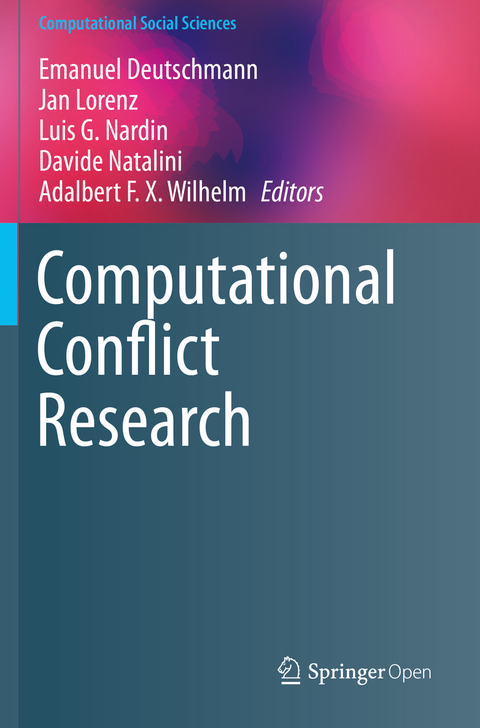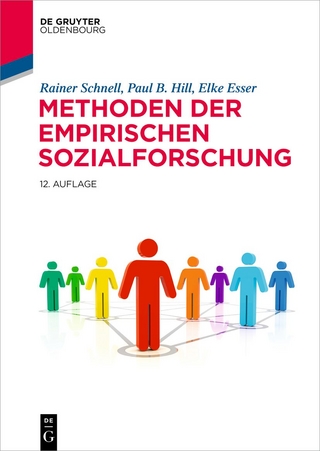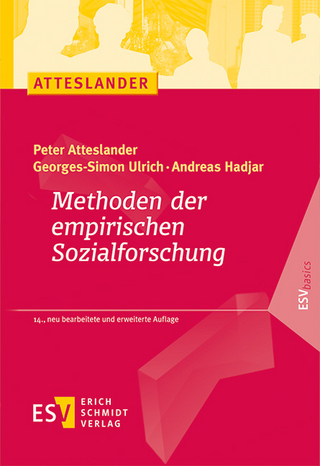
Computational Conflict Research
Springer International Publishing (Verlag)
978-3-030-29335-2 (ISBN)
Supplementary materials in the book include a comprehensive list of the datasets on conflict and dissent, as well as resources to online repositories where the annotated code and data of individual chapters can be found and where (agent-based) models can be re-produced and altered. These materials are a valuable resource for those wishing to retrace and learn from the analyses described in this volume and adapt and apply them to their own research interests.
By bringing together novel research through an international team of scholars from a range of disciplines, Computational Conflict Research pioneers and maps this emerging field. The book will appeal to students, scholars, and anyone interested in the prospects of using computational social sciences to advance our understanding of conflict dynamics.
Chapter1: Advancing Conflict Research through Computational Approaches.- PARTI: Data and Methods in Computational Conflict Research.- Chapter2: Advances in Data on Conflict and Dissent.- Chapter3: Text as Data for Conflict Research: A Literature Survey.- Chapter4: Interdependencies in Conflict Dynamics: Analyzing Endogenous Patterns in Conflict Event Data Using Relational Event Models.- PARTII: Computational Research on Non-violent Conflict.- Chapter5: Migration Policy Framing in Political Discourse: Evidence from Canada and the US.- Chapter6: The Role of Network Structure and Initial Group Norm Distribution in Norm Conflict.- Chapter7: On the Fate of Protests: Dynamics of Activation and Topic Selection Online and In the Streets.- PartIII: Computational Research on Violent Conflict.- Chapter8: Do Non-State Armed Groups influence each other in attack timing and frequency? Generating, analyzing, and comparing empirical data and simulation.- Chapter9: On the Beaten Path: Violence against Civilians and Simulated Conflict along Road Networks.- Chapter10: Analysis of Conflict Diffusion over Continuous Space,- Chapter11: Rebel Group Protection Rackets: Simulating the Effects of Economic Support on Civil War Violence
| Erscheint lt. Verlag | 11.9.2020 |
|---|---|
| Reihe/Serie | Computational Social Sciences |
| Zusatzinfo | XVIII, 264 p. 54 illus., 33 illus. in color. |
| Verlagsort | Cham |
| Sprache | englisch |
| Maße | 155 x 235 mm |
| Gewicht | 521 g |
| Themenwelt | Sozialwissenschaften ► Soziologie ► Empirische Sozialforschung |
| Schlagworte | agent-based conflict modeling • computational conflict research • Computational Social Sciences • computational social sciences and conflict dynamics • conflict dataset • conflict studies book • modeling conflict dynamics • modeling social conflict • open access • open access computational social science • social network analysis • terrorism network analysis |
| ISBN-10 | 3-030-29335-1 / 3030293351 |
| ISBN-13 | 978-3-030-29335-2 / 9783030293352 |
| Zustand | Neuware |
| Informationen gemäß Produktsicherheitsverordnung (GPSR) | |
| Haben Sie eine Frage zum Produkt? |
aus dem Bereich


